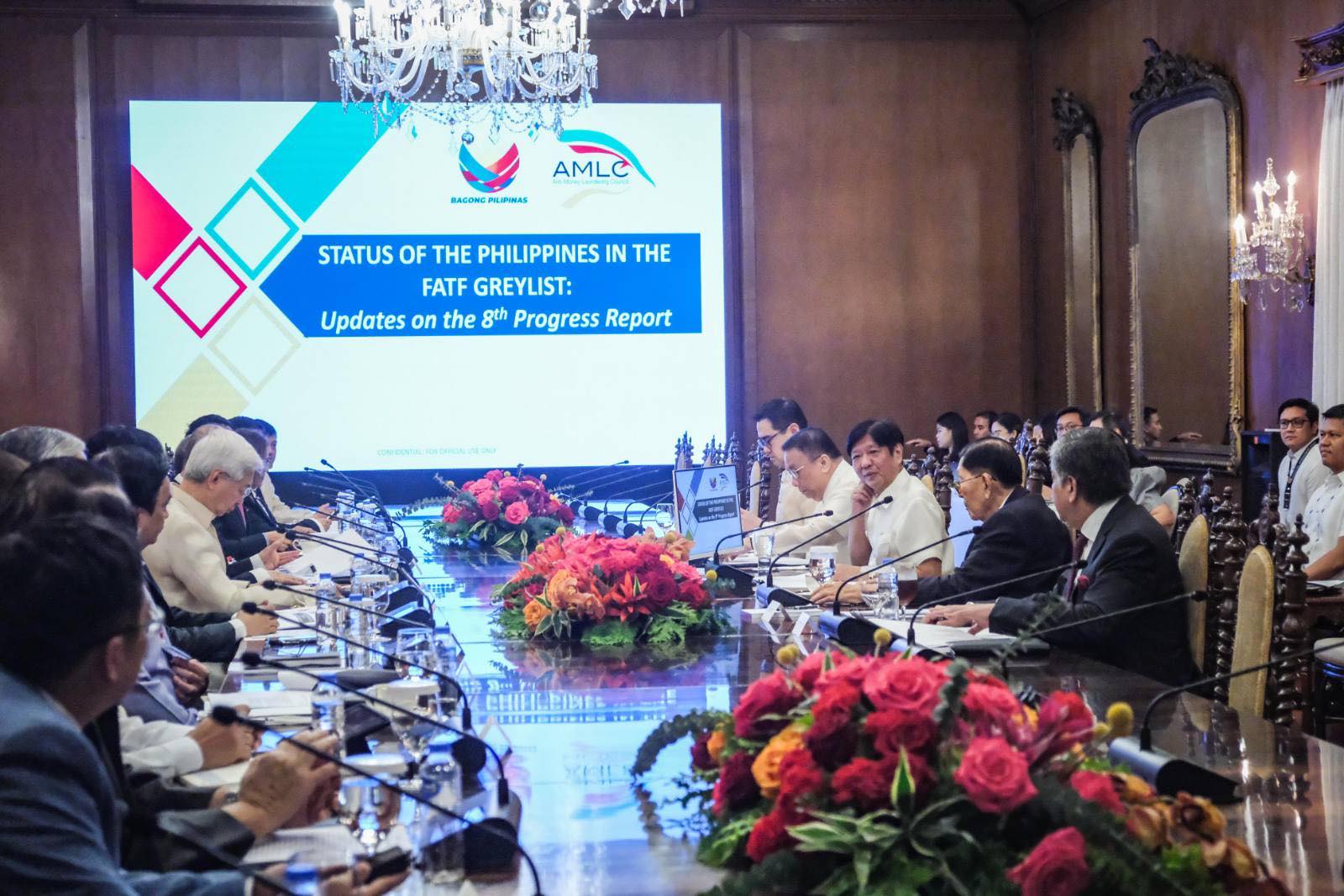Philippines still in FATF’s int'l money laundering 'grey list'

The Philippines remains on the Financial Action Task Force’s (FATF) “grey list” or countries under increased monitoring to improve anti-money laundering and counter-terrorism financing (AML/CFT) measures.
The FATF identifies countries or jurisdictions with weak measures to combat AML/CFT under “black” and “grey” lists. It issues its lists three times a year.
Those under the “black list” are countries identified with “serious strategic deficiencies to counter money laundering, terrorist financing, and financing of proliferation.”
Meanwhile, when the FATF places a nation under “grey list” or increased monitoring, it means that a country committed to resolving the identified strategic deficiencies within agreed timeframes and is subject to increased monitoring.
The Philippines joins Bulgaria, Burkina Faso, Cameroon, Croatia, Democratic Republic of the Congo, Haiti, Kenya, Mali, Monaco, Mozambique, Namibia, Nigeria, Senegal, South Africa, South Sudan, Syria, Tanzania, Venezuela, Vietnam, Yemen in the FATF’s “grey list” released this month.
Those under the “black list” are the Democratic People’s Republic of Korea, Iran, and Myanmar.
In its latest statement released on June 28, Friday, the FATF, nevertheless, said that the Philippines has taken significant steps towards improving its AML/CFT regime.
Among the steps cited by the FATF include “demonstrating an increase in money laundering (ML) investigations and prosecutions in line with risk; enforcement of beneficial ownership transparency obligations and law enforcement access to those beneficial ownership data records; and that risk-based supervision of DNFBPs (Designated Non-Financial Businesses and Professions) is occurring.”
The FATF, however, said the Philippines should continue to work on implementing its action plan to address its strategic deficiencies, such as:
- demonstrating that supervisors are using AML/CFT controls to mitigate risks associated with casino junkets
- applying cross-border measures to all main sea/airports including detection of false declarations of currency and confiscation action in line with risk
- demonstrating an increase in the prosecution of TF cases in line with risk
The statement also highlighted that since June 2021, when the Philippines made a high- level political commitment to work with the FATF and the Asia/Pacific Group on Money Laundering (APG) to strengthen the effectiveness of its AML/CTF regime, “the country has taken substantial steps forward.”
“The FATF urges the Philippines to swiftly implement its action plan to address the above-mentioned strategic deficiencies as soon as possible as all deadlines expired in January 2023,” it said.
Early in January this year, President Ferdinand Marcos Jr. directed concerned government agencies to address and resolve the Philippines' ''grey listing.”
The government has imposed a deadline to exit the grey list by the start of 2024, since the country did not meet the deadline of January 2023.
In a statement, the Anti-Money Laundering Council (AMCL) said the National Anti-Money Laundering, Counter-Terrorism Financing, and Counter-Proliferation Financing Coordinating Committee (NACC) and all agencies concerned have been exhausting all measures in line with the President’s directive.
The Executive Secretary heads the NACC.
The AMLC said that in the recent FATF Working Group and Plenary meeting, Executive Secretary Lucas Bersamin reaffirmed the nation's commitment to combating money laundering, terrorism financing, and proliferation financing of weapons of mass destruction.
Aside from citing the progress made, Bersamin emphasized the comprehensive, whole-of- nation approach, the high-level commitment, and continuous efforts of the Philippines to improve its financial security regime.
The AMLC said the Philippines will continue to work on implementing its action plan to address remaining deficiencies, which includes demonstrating that supervisors are using AML/CTF controls to mitigate risks associated with casino junkets; implementing cross-border measure across main air/seaports, including detection of false declaration of currency and resulting confiscations; and demonstrating an increase in the prosecutions of terrorism financing cases.
“We welcome FATF’s recognition of the country’s progress in strengthening its position in the global fight against financial crimes, even as we remain focused on addressing remaining action plan items,” said AMLC Executive Director Matthew David. —NB, GMA Integrated News




